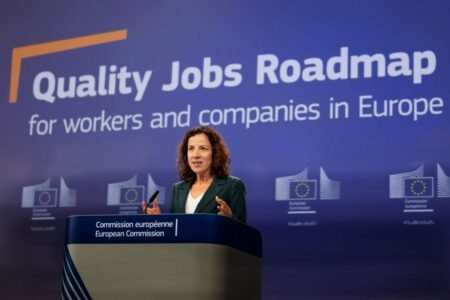Flexicurity attempts to conciliate both employers’ and workers’ needs, flexibility and security, by ensuring the worker safe transitions inside the labour market, while maintaining and improving competitiveness of the companies and also preserving the European social model.
Advertisement
Each Member State has a specific labour market situation and culture. The European Commission is therefore not aiming for a one-size- fits-all “flexicurity recipe” for all Member States, but rather to establish “pathways” to be developed towards achieving more flexicurity. Pathways are sets of measures that can, if introduced in conjunction with each other, improve a country’s performance in terms of flexicurity.
Various pathways need to be designed, fitting to different national situations:
- Pathway 1: tackling contractual segmentation
- Pathway 2: developing flexicurity within the enterprise and offering transition security
- Pathway 3: tackling skills and opportunity gaps among the workforce
- Pathway 4: improving opportunities for benefit recipients and informally employed workers
Flexicurity pathways should integrate the four components:
- Flexible and reliable contractual arrangements from the perspective of the employer and the employee, of ‘insiders’ and ‘outsiders’
- Comprehensive lifelong learning strategies to ensure the continual adaptability and employability of workers
- Effective active labour market policies that help people cope with rapid change, reduce unemployment spells and ease transitions to new jobs
- Modern social security systems that provide adequate income support, encourage employment and facilitate labour market mobility
To face the common challenges, the EU Member States have proposed the following common principles, here explained briefly:
- Flexicurity is a means to reinforce the implementation of the Lisbon Strategy, create more and better jobs, modernize labour markets, and promote good work through new forms of flexibility and security to increase adaptability, employment and social cohesion.
- Flexicurity involves the deliberate combination of flexible and reliable contractual arrangements.
- Flexicurity approaches are not about one single labour market or working life model, nor about a single policy strategy: they should be tailored to the specific circumstances of each Member State.
- Flexicurity should promote more open, responsive and inclusive labour markets overcoming segmentation. It concerns both those in work and those out of work.
- Internal (within the enterprise) as well as external flexicurity are equally important and should be promoted. sufficient contractual flexibility must be accompanied by secure transitions from job to job.
- Flexicurity should support gender equality.
- Flexicurity requires a climate of trust and broadly-based dialogue among all stakeholders, where all are prepared to take the responsibility for change with a view to socially balanced policies.
- Flexicurity requires a cost effective allocation of resources and should remain fully compatible with sound and financially sustainable public budgets.
Mission for Flexicurity
At the request of the Council, the Commission has launched a public initiative, in close cooperation with the European social partners, in the form of a “Mission for Flexicurity”.
This initiative aims to help Member States integrate the Common Principles of Flexicurity in the national processes and promote the practical implementation of the principles in the different national contexts.
To achieve this, the Mission has visited a limited number of Member States and discussed with them how they have been developing and implementing their flexicurity pathways at the national level:
Source: European Commission







